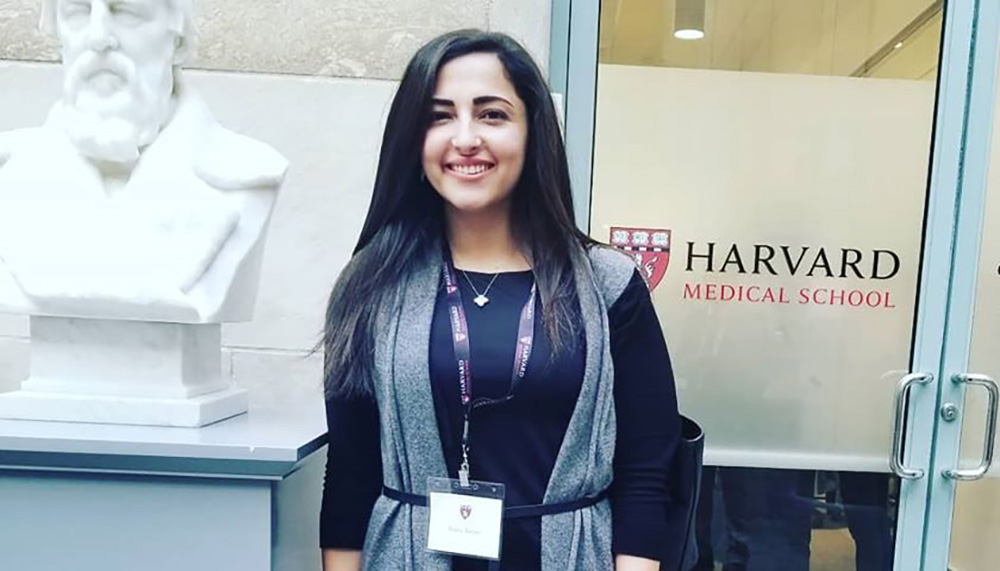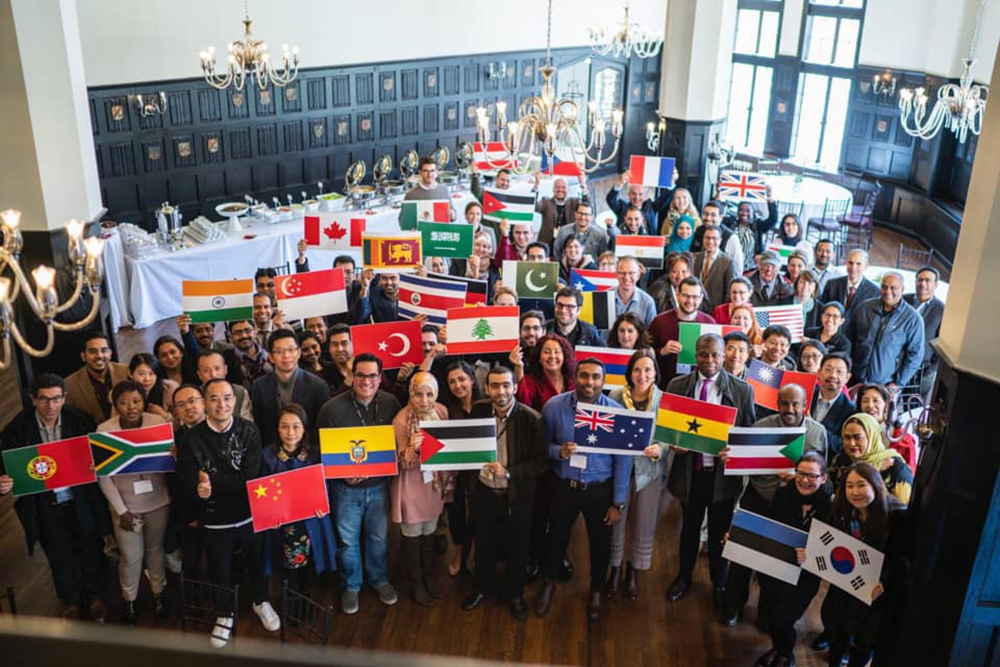
When providers at AdventHealth Shawnee Mission Cancer Center run out of answers or options, they turn to UMKC School of Pharmacy faculty member Diana Tamer, Pharm.D., BCOP, for assistance.
A clinical pharmacist specialized in hematology and oncology at AdventHealth Shawnee Mission, Kansas, Cancer Center, Tamer completed Harvard Medical School’s Cancer Biology and Therapeutics Cancer Research program last fall.
The highly specialized, year-long certificate program brings together some of the world’s brightest minds in cancer care. That includes Harvard’s top faculty involved in drug discovery and clinical trials, as well as internationally recognized leaders in cancer research.
Beyond the common cancer treatments currently available, Tamer explored the evolving role genomics play when battling different forms of cancer. She completed the program last fall, specializing in cancer genomics and clinically challenging tumors.
Tamer says she pursued the program to continue to grow as a faculty, learn new teaching and assessment strategies, and evolve as a clinical preceptor for the next generation of pharmacists.
“During my residency training, I didn’t train in interpreting genomic testing beyond diagnostics and application for FDA approved targeted therapies,” Tamer said. “Now, physicians come to me after multiple lines of therapy that failed and give me patients’ tumor genomic profile information and ask, ‘How can I treat this patient?’ They don’t come to me for straightforward things or per guideline recommendations, but rather off-label and clinical trial options. They don’t come to me and say ‘Diana, how do you want to treat this new lung cancer patient.’ They already know that. They consult me when they’re out of options.”
When that happens, she reviews patients’ complete disease and treatment history, as well as genomic tumor profiling, and patterns of drug-resistance. Then she discusses recommendations with a consultant and meets with the patient to discuss options or facilitate clinical trial enrollment if they’re eligible.

Along with Tamer, health care professionals and researchers from 42 countries took part in the Harvard program. That global experience, she said, has already unlocked evolving treatment options that previously may have been unavailable for Kansas City-area cancer patients.
“One of the fascinating things about the program is the connections you make,” Tamer said. “I’ve sent two patients to Boston for clinical trials because I know the physicians on those trials. Having those connections are very valuable.”
Meeting the faculty at Harvard’s Dana Farber Cancer Institute has also inspired her own research. Tamer is in the early stages of a study to identify genes that may predispose gynecologic cancer patients’ hypersensitivity reactions to platinum-containing chemotherapy drugs. Allergic reactions to those drugs can lead to potentially fatal anaphylactic reactions, limit treatment options and ultimately affect prognosis and disease outcomes.
“I want to take what I learned to improve my teaching, better serve my patients, and establish a new clinical trial,” Tamer said. “I’m still doing the background review, but I was inspired by a lot of the work and things that I learned at Harvard Medical School.”